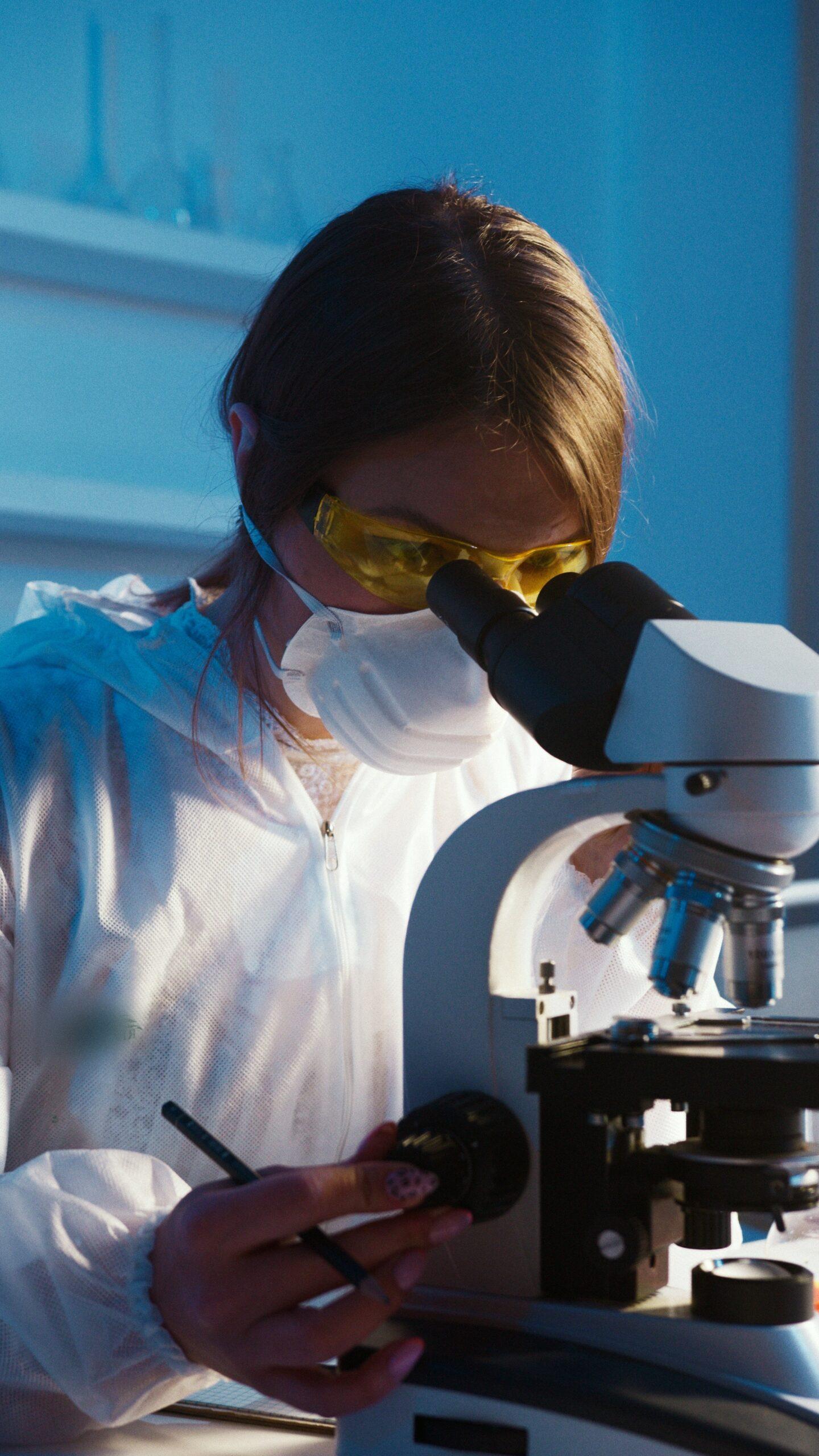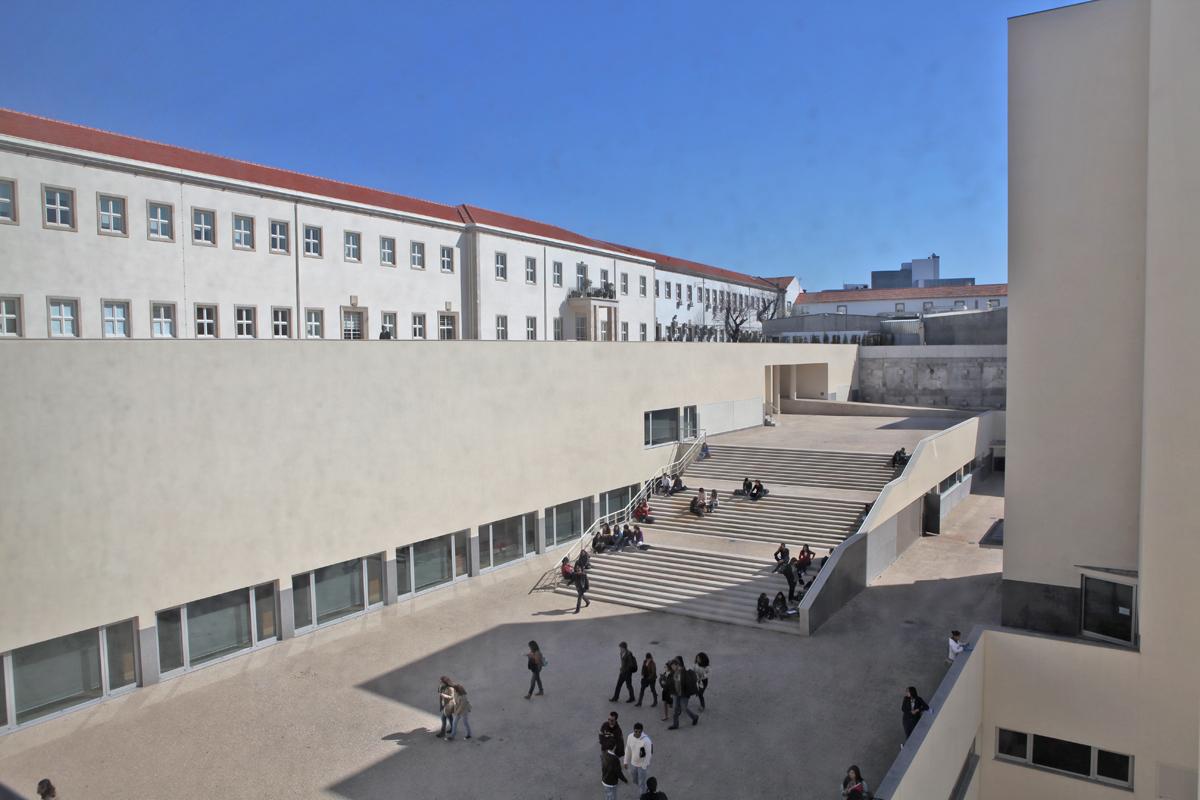UMIB is a research unit dedicated to clinical medicine based at School of Medicine and Biomedical Sciences of the University of Porto and its University Hospital, Centro Hospitalar Universitário do Porto.
UMIB researchers are devoted to study diseases with considerable impact for human health, based on the high prevalence, morbidity or mortality, but also to rare diseases whose clinical management involves specific levels of expertise and research programs require the multidisciplinary skills of an academic excellence centre. UMIB research focus and interests are in continuous progress as these are triggered by the need to find real answers to questions arising from clinical practice. Innovative solutions arise from the close collaboration of multidisciplinary teams spanning from basic molecular researchers to clinical scientists that allow an efficient implementation of translational research protocols taking advantage of the accessibly to robust patient data and cutting-edge laboratory resources.

Our History

Four decades ago, at the dawn of the democratic revolution in Portugal, a new Medical School was founded at the University of Porto, the so-called School of Medicine and Biomedical Sciences , with the novelty of all its Faculty Professors having a solid record of published original research.
A decade later, one of the founding fathers of ICBAS, Nuno Grande, MD, PhD, created UMIB to promote joint efforts between basic scientists of ICBAS and clinical researchers of the University Hospital that is affiliated with ICBAS (Hospital de Santo António). Two younger professors of ICBAS (António Sousa Pereira and Paulo Correia de Sá) followed Nuno Grande in the management of UMIB.
In 2013, Mariana P. Monteiro, MD, PhD, was elected as the new Scientific Coordinator of UMIB. Her election represents a change in generation and has brought major reforms in the organization of UMIB. The leadership of Mariana Monteiro aims at enhancing the scientific output of UMIB by fostering new collaborative endeavors among the different groups of UMIB and by devoting UMIB’s energy to translational research.
This strategy has firmly established the research unit within the scientific and academic communities, both at national and international levels. In 2024, UMIB continues mainly dedicated to translational research in Health Sciences, and its success is evident through the integration of new PhD members and the exploration of novel research topics. UMIB will continue focused on contributing to health research and to the dissemination of knowledge.
UMIB is a multidisciplinary unit dedicated to research applied to clinical medicine. This unit ultimate main aim is to achieve innovation and scientific progress to improve human health, focusing on the study of high impact diseases and disorders based on the prevalence, morbidity or mortality.
UMIB research focus are mostly triggered by the need to find real answers to questions arising from every day clinical practice and uses a translational approach to unravel the unknown, with the ultimate goal of improving health-care outcomes.
UMIB research is grounded on the close collaboration of multidisciplinary research teams spanning from basic molecular researchers to clinical scientists that allow an efficient implementation of translational research protocols taking advantage of the easy accessibly to patient data and cutting edge laboratory resources.
UMIB is based at the Institute of Biomedical Sciences Abel Salazar, University of Porto (ICBAS / UP) and the Centro Hospitalar do Porto (CHP), a Medical School and its University Hospital. Together, the two institutions are the core of Centro Académico-Clínico ICBAS-CHP that hosts UMIB researchers. Grounded within a close geographic location on two intercommunicating campus, researchers are either based on laboratories or clinical departments depending on the expertise and activities conducted, both under the support of the larger organization that ensures a successful integration of research efforts. This integration is only made possible by the close collaboration between Mariana P. Monteiro, UMIB general coordination and Luísa Lobato, the director of DEFI (Departamento de Ensino, Formação e Investigação/Department of education, formation and research) at CHP, which joint their efforts in the management of research strategies and serve as a communication between the institutions.
UMIB key-resources include:
Being based in one of the largest tertiary healthcare centers in the Northern Portugal that allows the accessibility to a large and well-characterized patient population;
Having accessibility to core laboratory research equipment and facilities appropriate to achieve the research goals, such as animal facilities, cell culture, confocal microscopy, flow-cytometers and real-time thermocyclers; and last but not the least;
Having accumulated a broad spectrum of skills and expertise among the research team spanning from basic to clinical medicine that guarantee the use of different approaches to achieve a common objective, thus creating the basis for the establishment of Translational Research programs.
UMIB is dedicated to translation and clinical research on epidemiology, disease mechanisms, identification of biomarkers and targeted therapies for human diseases.
UMIB managing structure consist of a General Coordinator based at ICBAS that work in close partnership with the Head of DEFI based at CUHP, while researchers are organized into different teams, each lead by a Senior Principal Researcher. These research teams are dedicated to more specific topics of medicine: human genomics, autoimmunity and neurosciences, haematology, oncology, nephrology, endocrinology and reproduction. Despite each research team is dedicated to the study of diseases of epidemiological relevance in their specific area of interest, there is a considerable overlap and some research projects result from a more transversal approach that feeds from various disciplines and benefits from the collaboration of the different research teams within the unit. As a whole, UMIB covers a broad spectrum of medical conditions speeding through this approach the process clinical refinement.
These include the description of a novel primary immunodeficiency, namely a congenital sideroblastic anemia with immunodeficiency, fevers and developmental delay (SIFD) and identification of the genetic basis of the disease (TRNT1 mutations); discovery of a novel congenital genetic disorder of glycosylation as a consequence of MAN1B1 deficiency; novel variants of primary ciliary dyskinesias that also drove to new pre-implantation genetic tests; and the recognition of FGA p.Glu545Val variant as a frequent cause of the fibrinogen A-alpha-chain amyloidosis in the Northern Portugal.
Our research focusing on male reproductive function allowed to enlighten the molecular mechanisms underlying the metabolic regulation of spermatogenesis, furthermore this has allowed to understand the pathways leading to the negative impact of common metabolic disorders such as obesity and diabetes on human male fertility. These findings could have far reaching impact as set the grounds for the development of molecules targeting key factors for sperm motility, which could culminate into the design of innovative, effective and safe male contraceptive agents. Our research efforts contributed to disclose the role of endothelial cells (EC) in the pathophysiology of the thrombotic events, by using flow cytometry to quantify and characterize circulating EC and EC progenitors, of patients with recurrent thrombosis and Myeloproliferative Syndromes.
Molecular and clinical data associated with disease physiopathology and progression was gathered from large cohorts of patients with autoimmune and neurological disorders, including Systemic Lupus Erythematosus (SLE), Multiple Sclerosis (MS), Behçet’s Disease (BD), Sleep Disorders (Hypersomnolence), and Epilepsy (Mesial Temporal Lobe Epilepsy – MTLE). Our study focusing on the contribution of genetic factors, such as HLA, and microRNA’s epigenetic factors, for the heterogeneity of these complex inflammation-associated diseases have allowed to uncover new biomarkers of disease susceptibility, progression and treatment response. The outcomes of this research represent a significant advance in the disease classification by allowing an earlier diagnosis, discrimination between clinical subgroups according to severity and outcomes, driving to the implementation of more effective treatments and leading to considerable improvement in disease prognosis. The impact of these findings was particularly striking in the “Non-Classical” Autoimmune/Inflammatory Diseases (AI/ID), such as Sleep Disorders cursing with daytime hypersomnolence, namely narcolepsy type 1 (N1), type 2 (N2) and Idiopathic Hypersomnia (IH) often difficult to distinguish from based on the clinical course of the disease. Our work has demonstrated that different HLA alleles allow the genetic identification between the conditions allowing such a distinction to be made. In addition, studies focusing in another “Non- Classical” AI/ID, such as MTLE, in which treatment resistance is known to be associated with CNS inflammation, we were able to demonstrate that the dysregulation of the purinergicinflammatory axis is the main contributing factor for seizure propagation and a poor response to pharmacological treatment. Major breakthroughs were made in oncology research, namely we described one of the first European series of patients with NK cell lymphomas, giving emphasis to the immunophenotypic characteristics of the neoplastic NK cells, and we investigated the utility of flow cytometric detection of aberrant/altered NK-cell phenotypes as a surrogate marker for clonality, in the diagnostic work-up of chronic lymphoproliferative disorders of NK cells (CLPD-NK), allowing to conclude that the CD94(hi)/HLADR phenotypic profile proved to be a useful surrogate marker for NK-cell clonality. Moreover, our research revealed that non-small cell lung cancer (NSCLC) exosomes and sorted miRNAs constitute novel tumor biomarkers that could enable earlier disease diagnosis in a near future. The identification these biomarkers could change the prognosis of NSCLC, a disease that currently has a very poor 5-year survival rate due to detection delay as most of patients are diagnosed in an advanced disease stage.
Research on the immunobiology of renal transplantation identified donor-specific antibody C1qbinding as predictors of antibody-mediated rejection in human leucocyte antigen-incompatible kidney transplantation that allows to stratify the risk of graft failure after renal transplantation and thus allowing a targeted intervention. Research on Fanconi Anemia (FA) identified Red Blood Cell distribution width as a biomarker of stress erythropoiesis and antioxidants were shown to be protective against the chromosome instability, thus offering new opportunities for treatment.
Based on our studies on the role of gut hormones in controlling energy intake and glucose homeostasis, which contributed to the understanding of the molecular mechanisms underlying diabetes remission induced by weight loss surgical procedures such as gastric bypass (RYGB), a modified RYGB procedure with a longer biliopancreatic limb was devised and implemented in the clinical practice with improved anti-diabetic effects. Thus, our data has demonstrated that metabolic surgical interventions could be patient tailored to improve T2D outcomes. Moreover, aiming to achieve the best possible clinical outcomes in type 2 diabetic (T2D) patients with metabolic surgery intervention, as part of an international collaborative effort, we have established a novel diabetes remission prediction score (DiaBetter). In addition, our research focused on Hereditary Transthyretin Amyloidosis, ATTR V30M mutation allowed to identify new clinical features to the previously described hereditary disease, such as microalbuminuria as the presenting feature antedating the establishment of the neuropathy in V30M carriers; led the recommendation to perform simultaneous liver-kidney transplantation as a healthcare strategy in this patient population to enhance efficacy and safety by avoiding recurrence of nephropathy in ATTR patients with chronic renal disease; allowed to disclose and identify a new indications for a previously available drug, as the use of a transthyretin stabilizer tafamidis in kidney disease, in addition to peripheral neuropathy.
The ITR has the participation of 187 PhD researchers and its main objective is to promote research in the area of population health.

